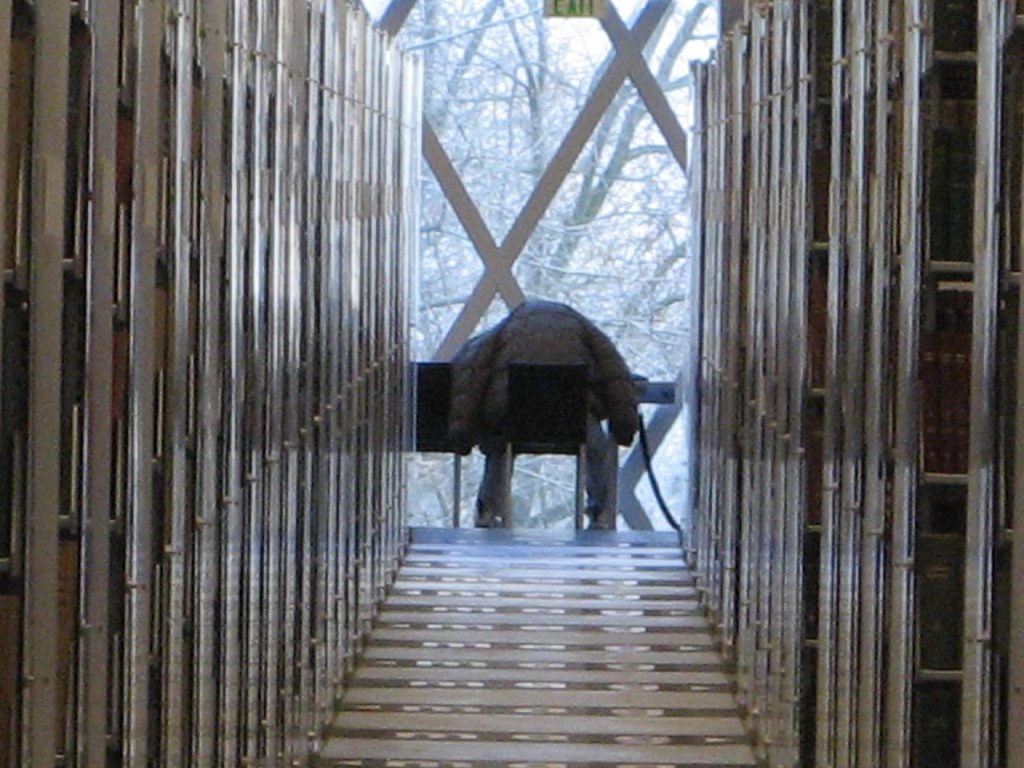 Asleep at the Seattle Public Library. Image via
Asleep at the Seattle Public Library. Image via“Librarians are the most committed community activists I know.” – Caroline Kennedy at ALA Midwinter Meeting 2012
The night before happened to be the 33rd annual One Night Count where social service agencies and volunteers attempt to physically count the people sleeping on the street. In Seattle almost 2,000 people were found sleeping on the street, a 5% increase since last year.
Keeping to the theme and push of this year’s midwinter meetings; “Community Engagement and the Promise of Libraries Transforming Communities,” perhaps it should of been framed as a Day of Necessity.
As the librarians dispersed around Seattle to visit various shelters I stayed behind with a handful of librarians to listen to a presentation on ‘Homeless Youth and the Library’ by Jill Palzkill Woelfer and Julie Winkelstein.
Fact: the library is on the frontline when dealing with homeless youth. Most will visit and visit often. For many, the library provides the only lifeline to parents and families as many of the homeless youth come to the library to check in on their Facebook account.
The library has come a long way from its days solely as a book depository. The library of today is a resource hub and community epicenter. And as the poster below states: A trained librarian is a powerful search engine with a heart.
As Winkelstein says “we are librarians, we are flexible and we care”
In his talk, Peter Block, the best-selling author of Community: The Structure of Belonging, refers to public libraries as “centers of abundance,” and one of the few places in our society that is naturally integrated, a place where we regularly witness interactions between people from different cultures.
The Library as Shelter, November, 2006
Seattle and the New Koolhaas Central Library: Is the Honeymoon Over? March, 2007



